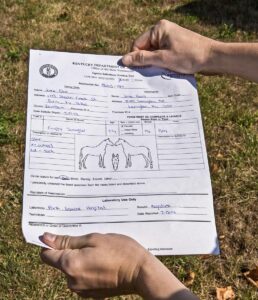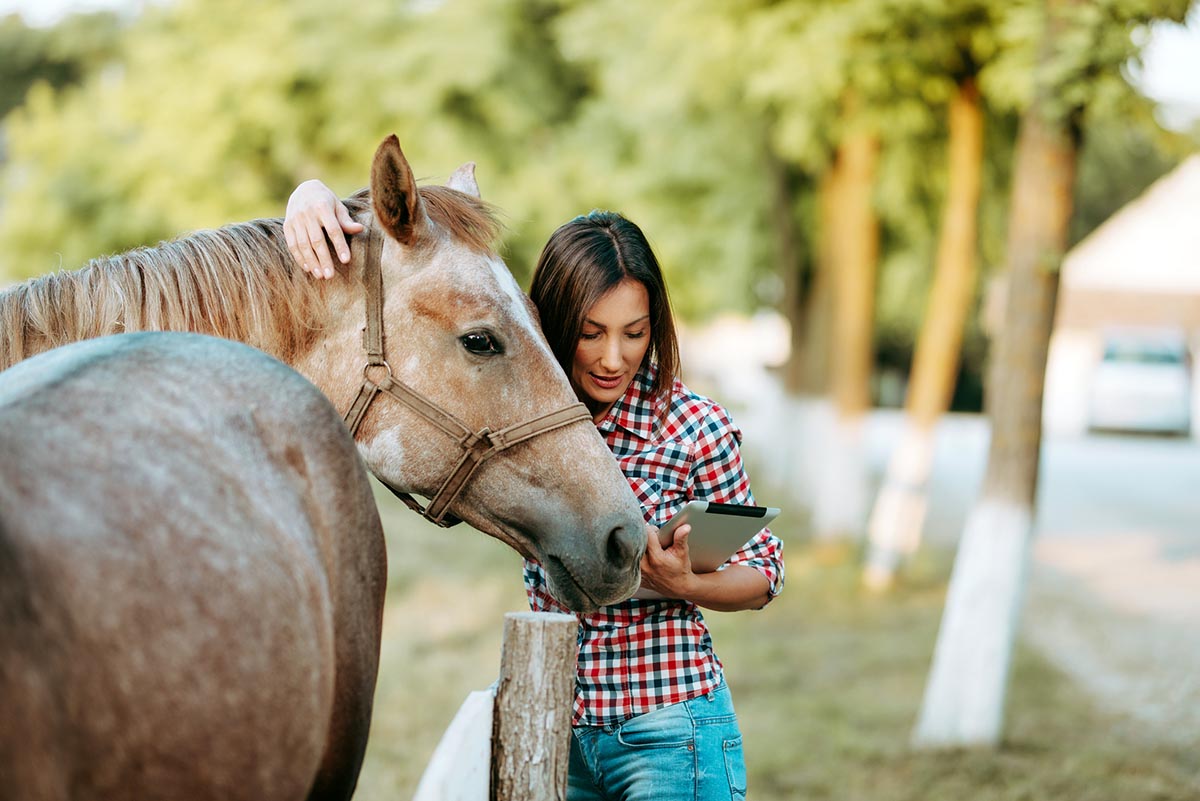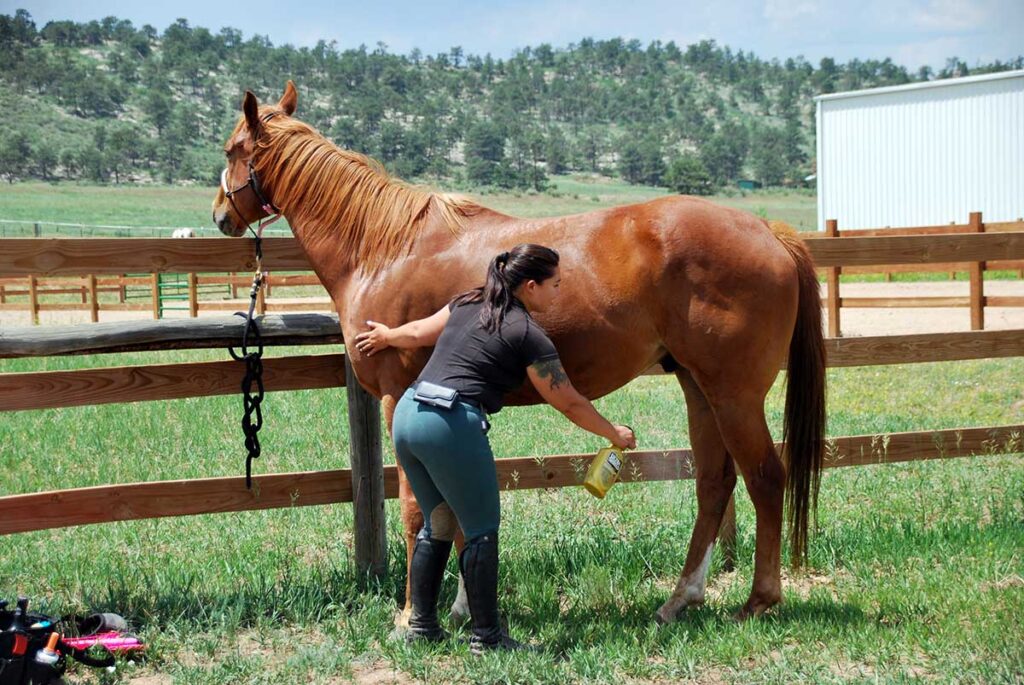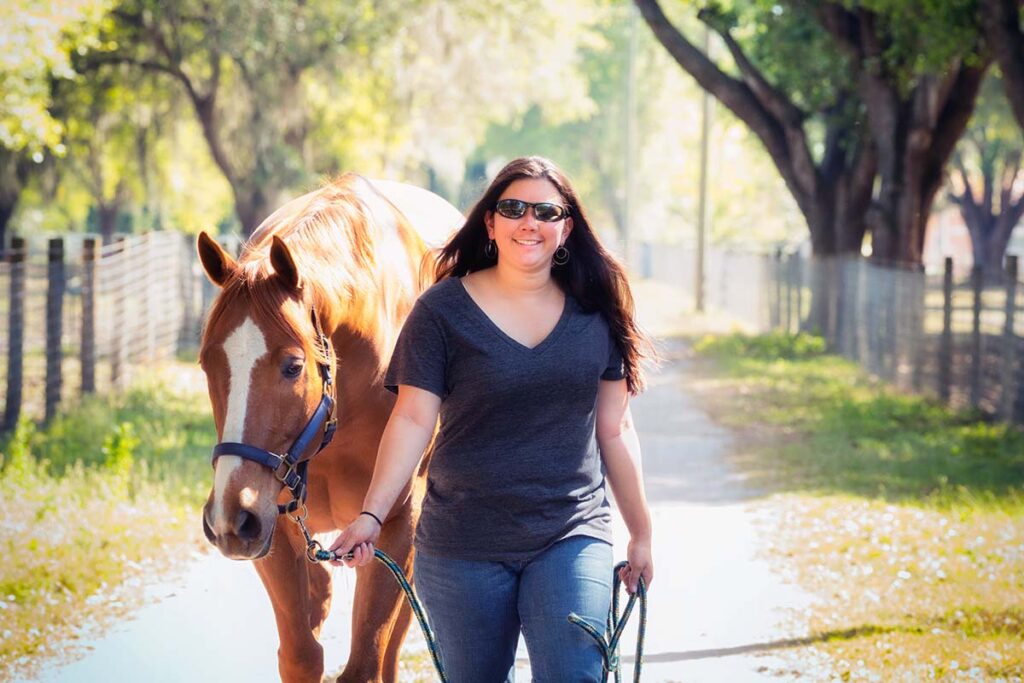A “Coggins”—it sounds more like part of a gear than an equine blood test. However, you should always ask for proof of a recent negative Coggins test when you buy a new horse. And if you already own one, this test should be part of your horse’s annual preventive care. In this article, we’ll explain what a Coggins test is, why it’s important, and when you should have one done on your horse.
What Is a Coggins Test?
A Coggins test is a laboratory test that detects whether U.S. horses have equine infectious anemia (EIA, aka swamp fever). EIA is a viral disease that has no cure and can be fatal to horses. Blood-sucking insects such as horseflies and mosquitoes transmit the virus. Equipment (e.g., needles) that has come in contact with infected blood can also transmit it.
The Coggins test itself—named for Dr. Leroy Coggins, the veterinarian and virologist who developed the test back in the 1970s—is a simple blood test a veterinarian conducts and sends to a USDA-approved laboratory for analysis. If your horse has antibodies against the EIA virus—meaning he’s been infected—he will test positive for the disease.
When and Why to Test Your Horse

Have your veterinarian perform a Coggins test on your horse every year or before traveling across state lines. Vets recommend testing all horses that might encounter other horses at shows, trail rides, or boarding facilities annually. Many horse shows, trail rides, and other events require a negative Coggins for a horse to participate.
Horses that travel across state lines must have proof of a negative Coggins test taken within the last six to 12 months. Some states require horses to get tested every three months if attending fairs, exhibitions, or shows.
Always ask for proof of a recent negative Coggins before buying a horse. Also be aware that most boarding barns and training facilities require proof of a negative Coggins before accepting a new horse. If you plan to board your horse, be prepared with his test results before bringing him onto the property.
If you suspect your horse might have been exposed to EIA—because another horse he was in contact with tested positive, for example—have a Coggins test done as soon as possible.
The Importance of a Coggins Test
The Coggins test is important because it helps identify infected (also called carrier) horses that might not show visible signs of EIA. In many cases, an infected horse appears healthy for years but can still transmit the virus through its blood, putting other horses at risk. The viral infection spreads through the exchange of bodily fluids (blood, mucus, or saliva) between horses.
Events and Travel That Require Proof of a Negative Coggins
Most horse events require proof of a negative Coggins test for your horse to participate. This includes rodeos, races, horse shows, auctions, and fairs. Additionally, many boarding and trail-riding facilities will require proof that your horse is current on his Coggins. Always keep the original test result document in a safe place, and have a copy on hand if you travel with your horse.
Any horse traveling across state lines must have a negative Coggins certificate within the past year. Some states require more recent test results, so check with your destination state’s Department of Agriculture before traveling.
Take-Home Message
Coggins testing is an essential part of responsible horse ownership and necessary for detecting and preventing the spread of potentially deadly diseases like EIA. The test itself is inexpensive and quick and easy to perform. Remember to have your horse tested annually and to keep a copy of his test results where you can access it easily.
Are you enjoying this content? Sign up for My New Horse’s FREE newsletter to get the latest horse owner info and fun facts delivered straight to your inbox!








